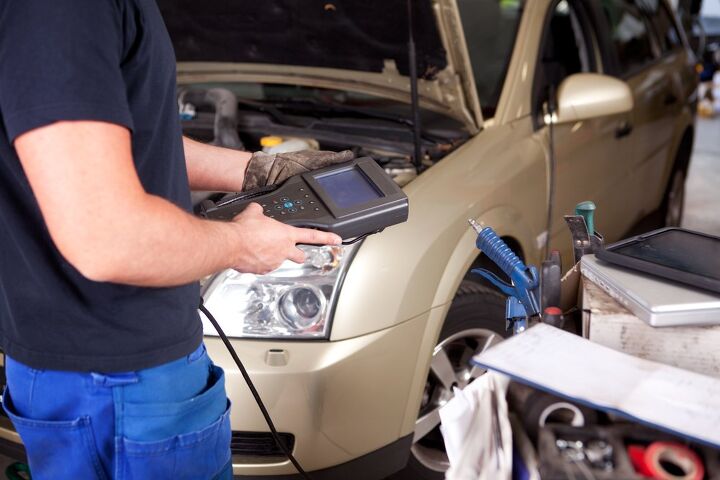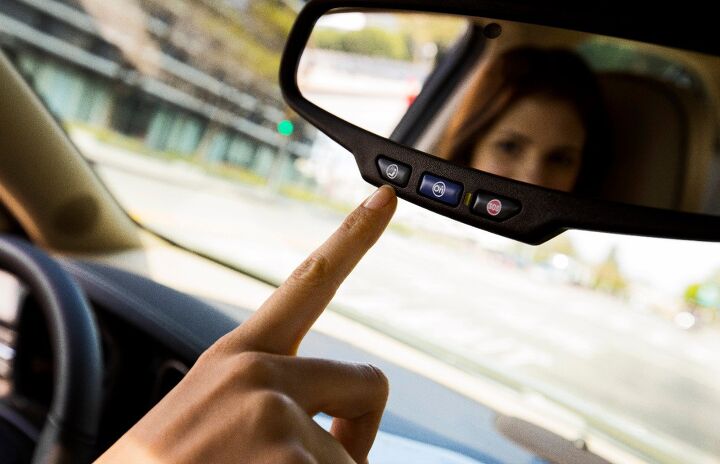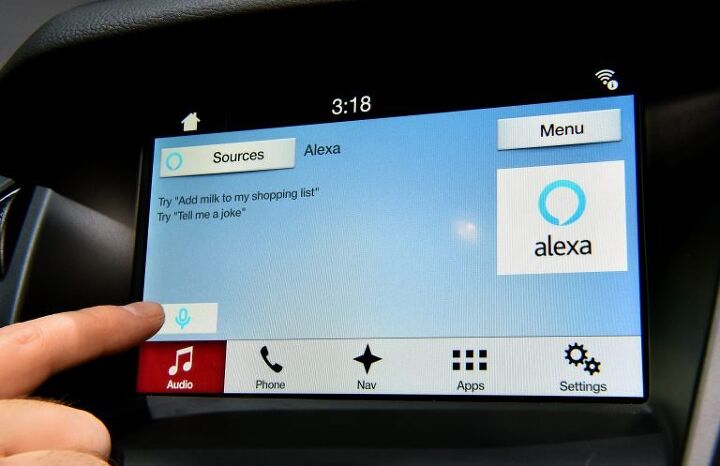#privacy
The Hero We Need: Consumer Access to Repair Coalition
When it comes to activism, it’s best to choose your battles carefully. Fortunately, there aren’t too many causes within the auto industry and most are easy to get behind.
Even though environmental activists sometimes find themselves at odds with reality, their hearts are usually the right place, and they’ve encouraged automakers to try new and interesting things with transportation. Safety advocates can likewise go overboard, but we wouldn’t have seen cars get dramatically safer (or heavier) since the 1970s if they hadn’t.
Our favorite has to be consumer advocacy, however. With the exception of the occasional predatory lawsuit looking to take advantage of a dumb corporate decision, there’s precious little to scoff about. It also tends to overlap with our pet peeves by decrying bad business practices within the industry. Case in point, the Consumer Access to Repair Coalition has recently asked Congress to rethink how vehicular data is shared — noting that automakers shouldn’t need real-time monitoring for repairs and that the technology likely poses an unnecessary security risk.
California's Data Privacy Laws Could Stymie Auto Industry's Long-term Plans
Pretty much anytime automotive data acquisition becomes the topic of discussion, we have to take time to mention customer protections and ask where the line for privacy should be drawn. With social media firms making a mint off the process online and automakers conducting major moves to likewise leverage personal data, it’s practically a nervous tic at this point.
Hoping to get out ahead of some of the potential problems arising from issue, California enacted new consumer protection laws that came into effect at the start of the year.
The California Consumer Privacy Act (CCPA) aims to give individuals greater control over the personal data being harvested. Most of this is supposed to be done by allowing consumers to request what kind of information is being collected, ask where it’s going, and the ability request that the subsequent sale or continued acquisition of personal data cease. However, CCPA contains provisions for customers to ask a company to delete all information it has stored on them, as well as rules prohibiting any discrimination related to a person exercising their privacy rights.
Frankly, it all sounds rather good to someone who prattles endlessly about data privacy rights, but it’s also causing problems for the automotive industry.
Driving Dystopia: License Plate Readers Are Becoming Increasingly Common
Policing a population is expensive. Law enforcement departments around the globe have long sought a way to tamp down costs or, more often, find better forms of supplemental revenue. Unfortunately, sending the SWAT team on a raid or hiring additional officers to patrol the highway for speeders costs money. But the price of surveillance technology continues to go down, encouraging agencies to tap into their rather robust capabilities — potentially at our expense.
China, the world leader in mass government surveillance, already has the ability to use its vast network of cameras to take over all manner of on-the-street policing. Electronic eyes are everywhere, often networked to facial recognition or plate identification technologies that enable authorities to mail you a ticket for speeding, jaywalking, or whatever else the patrolman failed to see you do in person. While some of the penalties stop at being publicly shamed via a national database or having your social credit score dropped (potentially barring you from some goods and services), these systems have also increased the number of finable offenses that make departments money.
While similar systems have been available in the United States, it seems the country’s penchant for liberty has drastically slowed their implementation. Yet it’s still happening, and there’s reason to suggest items like license plate readers and facial recognition software will soon become standard equipment for many (if not most) North American police departments.
Report: Connected Cars Already Know Everything About You
Vehicular privacy is one of those things we never thought we’d have to gripe about but, as automotive connectivity becomes the norm, it’s become one of the most nagging issues in the industry.
Taking a cue from tech giants like Google, Facebook, and pretty much every other website you’ve ever connected to, automakers have begun leveraging customer data on a massive scale. Always-on internet connections exacerbated this problem (feature?), but it’s extremely difficult to tell exactly what kind of information is being shot up into the cloud before ending up at a manufacturer’s data center.
While we’ve seen cars hacked for the purpose of assessing how they’d stand up to malicious entities bent on wreaking havoc, few have attempted to decode the surplus of information emitted by your vehicle. We know this because people would probably be pretty upset to learn of the pathetic level of anonymity currently afforded to them. Despite spending tens of thousands of dollars on a new vehicle, privacy is rarely considered standard equipment.
Australia Introduces Phone Detection Cameras for Roads
Australia put up the first phone-detecting cameras in New South Wales over the weekend. The move is part of a broader plan to reduce roadway fatalities by 30 percent by 2021 — especially as new technologies continue to exacerbate the issue of distracted driving. “It’s a system to change the culture,” NSW Police Assistant Commissioner Michael Corboy told Australian media las week.
There’s nothing incredibly new about the cameras themselves. But they’re networked to an artificial intelligence that determines whether or not someone behind the wheel is using their phone. Suspect images are then forwarded to authorized personnel to be verified as truly criminal.
States Begin Dealing With Driving Data, Right-to-Repair Laws
In reading this website, you’ve no doubt come across paranoid rants about automotive companies vacuuming up your personal data as connected cars become the norm — often written by yours truly. Frequently bleak, they address a multitude of concerns we believe will only get worse before they can get better.
A large part of that has to do with automakers seeing the potential of leveraging customer data, like so many tech companies have before them. But elected (and unelected) officials also seem to have a loose grasp of the technology and its potential ramifications. When the Department of Transportation initially approved self-driving vehicles for public testing, the guidelines were loose and largely dependent upon self-reporting — few wanted to stand in the way of developing systems that might someday save lives.
However, manufacturers are now beginning to issue over-the-air updates, perpetual internet connectivity, gamification, and in-car marketplaces (complete with advertisements). While the new technology has opened up new doors for customer experiences and corporate revenue, it’s accelerating at a pace that’s difficult to track. As a result, lawmakers in Massachusetts and California are starting to get antsy. The former hopes to address how data will be handled in accordance with the state’s right-to-repair laws. The latter is more directly concerned with privacy.
Ford's Adding Over-the-air Updates, Bigger Screens, More Connectivity
The days of owning an automobile that’s not perpetually connected to various digital networks are quickly coming to a close. On Wednesday, Ford announced most of its redesigned vehicles in the U.S. with have over-the-air update capability after 2020. The automaker is framing this as a way to “repair” your vehicle at home and offer new features after a model has already been purchased.
“Nobody wants to feel like they’re missing out on great features right after spending their hard-earned money on a new vehicle — that’s where our over-the-air updates can help,” said Don Butler, executive director of Ford’s connected services. “We can now help improve your vehicle’s capability, quality and overall driving experience while you’re sleeping.”
While the prospects of giving auto manufacturers remote access to your car are vast, it’s also a double-edged sword. Over-the-air updates would undoubtedly save you a trip to the service center in the event of a code-based recall but it also opens vehicle’s up to privacy concerns and gives automakers new avenues for business.
Listen Up: Amazon Putting Alexa Into More Automobiles
Amazon is striving to put Alexa, the home assistant/listening device, into more automobiles in the coming years. As a result, the company is working feverishly to enhance her vehicular-related capabilities — including wriggling her way into the embedded software systems of new cars.
On the surface, it sounds great. Networking your car with your smart home device opens up a bevy of new conveniences and Alexa should also help your car get better at understanding everyday voice commands. In the future, you’ll be able to order groceries, check the stock market, call the office, and adjust the thermostat of your house and car without ever having to take your hands off the steering wheel. But this also opens up a bevy of concerns, now that we know Amazon’s employees listen to and record pretty much everything you say to the device — sometimes doing the same for background conversations that were never intended for Alexa’s ears.
Insurance Companies Are Keeping Tabs on How Often You Use Your Phone Behind the Wheel
With mobile phones now a ubiquitous part of modern-day life, distracted driving has ballooned into a legitimate public safety problem. Alarming studies continue to pour in, with many claiming that driver cell phone use is likely underreported by authorities in crash reports. It’s hard to quantify, especially since nobody wants to admit that their moment of weakness may have contributed to an accident.
Add in a National Highway Traffic Safety Administration survey that found 30 percent of drivers aged 21 to 34 believe texting doesn’t negatively impact their driving, and you’d be forgiven for picking up your keys with sweaty palms.
A new study claims the issue has only gotten worse, with drivers spending more time on their phone than ever before. However, the way the data was acquired is disconcerting in itself. Insurance companies are tapping traffic data startups to monitor people’s phones, and they’re already capable of tracking millions of American devices.
Wrecked Cars Are Now a Treasure Trove of Personal Information
As cars grow more dependent upon computer-controlled driving aids and automakers implement permanent internet connectivity, we’ve grown increasingly concerned with how automakers handle their customer’s data.
It sounds conspiratorial, but there’s a series of events to hang the tinfoil hat on. In 2017, General Motors announced it had successfully monitored the listening habits of 90,000 motorists in a study aimed at improving marketing insights. It also rejiggered OnStar and introduced the Marketplace app for seamless in-car purchasing options. Our take was that it was as impressive as it was ominous — and GM is only leading the charge into a what analysts believe will eventually become a multi-billion dollar industry.
Naturally, this led to privacy concerns over how automakers will protect customer data on future models. But we might want to start worrying about the cars we have now. A couple of white-hat hackers (those are the good ones) recently probed the internal computer networks of wrecked and salvaged Teslas and found a mother lode of personal information waiting inside.
Guilt-tripping Radar Speed Signs Could Soon Read Your Plate
Modern society seems to be divided into two camps — those who say, “If you aren’t doing anything wrong, why would you have a problem with [expanded government power A]?” and those who drop their copy of Reason in horror as each new measure designed to make society “safer” erodes their perceived freedom just a little bit more.
The former group will cheer this news, though the latter camp will surely decry our steeper descent into a Surveillance State. Those annoying roadside signs that flash your current speed might soon record your plate number.
Should Police Have the Ability to Track and Disable Self-driving Vehicles?
Autonomous vehicles have created an endless series of unanswerable questions. As the technology continues to advance, decisions on how best to implement it have not. We’ve yet to discern who is liable in the event of an accident, how insurance rules would change, if they can coexist effectively with traditional automobiles, how they will impact vehicle ownership in the long term, and the infrastructure necessary to ensure they’ll function as intended.
There’s also a myriad of security concerns involving everything from the very real prospect of vehicle hacking to automakers selling the personal information of drivers. Both of those topics are about to come to a head as automakers continue shifting toward connected vehicles.
In March, the U.S. Transportation Department met with auto industry leaders, consumer advocacy groups, labor unions, and others in an attempt to navigate the minefield that is autonomous integration. The department previously hosted similar roundtable discussions in December after releasing the new federal guidance for automated driving systems, called “ A Vision for Safety 2.0.” That guidance freed up automakers and tech firms to test self-driving vehicles with fewer regulatory hurdles to cope with.
However, the December report seemed to focus mainly on how little everyone outside the industry understands the new technology.
Elderly Man Wins Court Case After Receiving Three Tickets for Smoking in His Porsche
While places like New York and California might come to mind first, no one bans things quite like the jurisdictions north of the border. Banning, a popular pastime given the cold outside temperatures, are always done in the hazy pursuit of public safety. Something bad could happen? Ban it.
When it comes to smoking, few will disagree that smoking in the workplace can have a negative impact on employees. The same goes for restaurant and bar patrons. As non-smoking areas (both indoors and outdoors) expand across the U.S., here’s a cautionary tale of how vindictive and overzealous an enforcer of these law can be.
They’ll nab you in your car.
Highway Star Rising, Act 2: Roadblock in the Bluegrass
Over a year has passed since my quest to regain my license began. A lot has happened since then.
Yes, Your Autopilot-Equipped Tesla Will Film a Crash
It’s common knowledge that Tesla vehicles store and transmit data back to the company’s Fremont, California home base, but a hacker working on a wrecked Model S just discovered something startling.
In an interview published by Inverse (h/t to Hybrid Cars), North Carolina computer programmer Jason Hughes claims that Tesla’s Autopilot system actually records video. While working on a center display unit from a wrecked Model S, Hughes found footage of the vehicle’s crash.






























Recent Comments